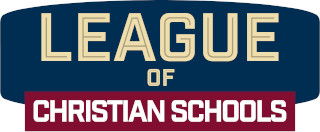Despite the overwhelming amount of work that needs to take place in order to run a quality Christian school, the business model of the school can be simplified to better understand how to effectively manage and lead a School of Excellence.
For Christian schools (or ANY non-profit, for that matter) there are three primary functions of the business model. ALL other functions fall within these three. Once these three basic ideas are understood, then developing leadership and direction for each one becomes MUCH easier and targeted. Following these functions will also streamline governance models for accreditation and decision-making.
Product/Service
This is your school’s reason for being – it is what you actually do everyday and aspire to be. Without a specific program, the school does not actually exist. This is also what you will present to prospective donors and the community. Remember, your reason for being should be based in the reality of offering an excellent, faith-based education that develops a truly Biblical worldview.
All other activities of the school should be designed to support the purpose. You should be able to answer, “what are we doing?” and equally important, “why are we doing it?”
If your school is considering developing programs to support the mission and vision of the school like adding a new sport, or developing an overnight preschool program, you should be able to tie the “why” directly to your school’s purpose. When that is not the case, then schools often find themselves being defined by the new program rather than quality education. Or, even worse, the new program becomes its own institution within the school framework, operating under its own vision and purpose and not that of the school. This can happen with sports, after school programs, tutoring programs, and just about any other support program that you can imagine.
Marketing and Fundraising
Marketing
Every successful effective Christian school should have an effective marketing strategy to communicate the school’s purpose and mission to the public. Marketing is defines as, “the action or business of promoting and selling products or services, including market research and advertising.” Learning how to promote the school and its services is not only difficult, but it is constantly changing on community need and perception.
Every Christian school also needs an effective fundraising function. Most schools do not generate enough revenue in tuition and fees to fully fund the program and services. It is critical that the greater community invest in the organization. However, it is this function that marries the donor to the cause.
There is a significant number of donors and foundations that fully believe in what you do and are willing to support your cause. But it will take work, dedication, commitment, and an effective strategy for communicating your vision and mission to those donors.
Administration
The administrator of the school is often seen by governing boards as the least valued role in the school. They are often more than willing to let the administrator “jump into a classroom” part time to offset expenses. This is often organizational suicide. Our agency has seen the closure of MANY schools on the heels of this strategy. If the captain of the ship has to share his time in the engine room at the rear of the ship, he will not only become exhausted by the double duty, but he will lose sight of the horizon and the ships destination for half of his journey.
One major criticism of public education is the over inflation of administrative roles over the years. While student growth rates have averaged around 96%, public education has seen a 702% increase in non-teaching staff. Christian schools must be careful to not over-staff administration. This will only cause an unneeded strain on the budget and often lead to employees filling spare time with trivial tasks to appear busy.
Once you define your services and programs in the first step of this model, then it becomes much easier to define who will do what. Remember, leadership CAN be shared with other stakeholders, including teachers. Putting a teacher in charge of the afterschool program with a small stipend, is much more effective and cheaper than hiring a part-time designated employee to oversee that function. Do the math yourself. Remember your obligations to state and federal withholding and the health care reform act. You will pay more!
Consider your current situation. Are your programs and services aligned to your purpose? Are they properly funded? Are you providing proper and sufficient leadership? If you have questions or concerns with any of these in your school, let us help! Contact ILCS today for consultation with one of our strategists.


